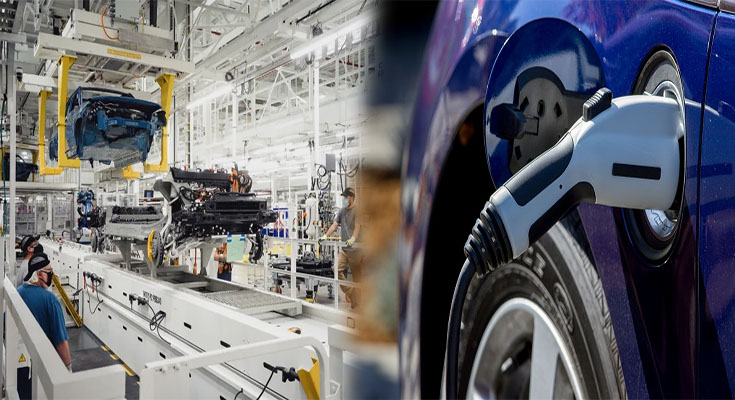The Electric Vehicle Industry is an ever-growing market that has become a major player in the automotive world. It is expected to continue to grow in the coming years due to increasing demand and growing government support.
Electric vehicles produce zero emissions and are a good option for consumers who are concerned about the environment. They also provide many benefits including cost savings and a federal tax credit.
Overview
The Electric vehicle industry is a rapidly growing market. Its growth is mainly driven by the increasing demand for fuel-efficient, high-performance, and low-emission vehicles.
Moreover, stringent government rules and regulations towards vehicle emission along with the reduction in cost of battery, fuel, and serviceability are also supportive for its growth. Besides, several governments around the world offer attractive incentives and policies to encourage sales of EVs.
The shift to EVs from ICEs is a long-term trend. The transition is driven by government policies that encourage consumers to switch, advanced technologies that lengthen driving ranges and lower prices, and the expansion of the charging network.
Growth
The Electric Vehicle Industry is growing at a rapid pace as governments support long range, zero emission vehicles through subsidies & tax rebates. This has resulted in a wide demand for EVs worldwide.
The European region is a major market with strict emigration morals, an emphasis on reducing conventional buses, and an increasing demand for battery-powered passenger cars. Moreover, the Asia Pacific area is also gaining traction in the global EV sector as a result of government investments and strict regulations.
Across regions, a rapidly expanding charging infrastructure is driving consumer interest in battery-powered EVs. Private entities and governments are building a web of chargers worldwide in order to boost green energy usage.
Advantages
Electric vehicles are a great way to save money and help the environment. They have zero tailpipe emissions, making them a cleaner alternative to fuel-powered cars.
They can run on renewable energy sources such as solar power, wind, and flowing water. You can reduce your carbon footprint and drive as much as you want without a large impact on the world’s resources.
They’re more cost-efficient to maintain than traditional vehicles, too. They don’t require oil changes or engine component replacements, and their batteries last longer than gas-powered vehicles.
Challenges
The Electric vehicle industry has a lot of challenges ahead. Firstly, they need to overcome the lack of charging infrastructure and expensive prices.
In addition, they need to ensure that the electricity generated by their vehicles is used efficiently and doesn’t cause a large amount of pollution.
These three issues are critical for the future of the industry.
In order to overcome these challenges, they need to develop strategies that help them reduce costs in the manufacturing process, optimize battery cost and direct supply of raw materials. These strategies can help them achieve a more profitable business model, which will allow them to compete in the EV market in the long run.
The Future
As governments worldwide implement regulations to phase out fossil fuel-powered vehicles, the market is expected to grow. They are also investing heavily in promoting the development and sale of EVs and related charging infrastructure.
Several countries have adopted policies to encourage the adoption of EVs and are implementing subsidies and tax refunds to stimulate their market growth. They are also providing incentives for EV manufacturers to develop efficient electric cars that can compete with conventional models.
Currently, the EV market is driven by stringent emission norms and high demand from consumers. Europe is anticipated to lead the industry in terms of EV adoption. In the most likely accelerated scenario, Europe will surpass regulatory targets and reach around 75 percent EV market share by 2030.

